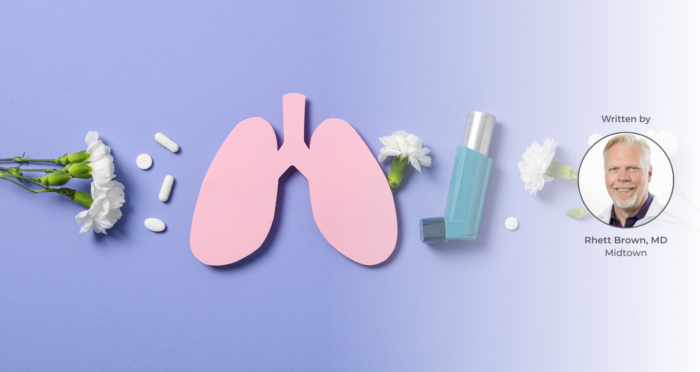Understanding Spring Allergies
Spring is a beautiful time of year, but for many, it also brings sneezing, itchy eyes, and congestion. Seasonal allergic rhinitis, commonly known as hay fever, affects millions of people each year. While over-the-counter medications help many allergy sufferers, some individuals continue to experience persistent and disruptive symptoms. If you find yourself struggling with allergy symptoms every spring, it may be time to consider allergy testing and immunotherapy as a long-term solution.
When Should You Get Allergy Testing?
If your spring allergies are interfering with your daily life, it may be beneficial to undergo allergy testing. Some key indicators that testing may be right for you include:
- Symptoms lasting several weeks or months without relief from medications.
- Difficulty sleeping due to nasal congestion or postnasal drip.
- Frequent sinus infections, ear infections, or worsening asthma symptoms during allergy season.
- The need for frequent use of antihistamines or decongestants to manage symptoms.
- Uncertainty about what specific allergens trigger your reactions.
Allergy testing can help identify the specific pollen, mold, or environmental factors causing your symptoms, allowing for a targeted treatment plan.
Types of Allergy Tests
Your primary care provider or allergist may recommend one or more of the following tests:
- Skin Prick Test – A small amount of allergens is placed on your skin, and a reaction is observed to determine sensitivities.
- Intradermal Skin Test – A small amount of allergen is injected under the skin for a more sensitive reaction test.
- Blood Test (Specific IgE Test) – Measures the level of allergen-specific antibodies in your blood to determine sensitivity.
What Is Allergy Immunotherapy?
Allergy immunotherapy is a long-term treatment option for individuals with moderate to severe allergies who do not respond well to traditional medications. It involves gradually exposing your immune system to small amounts of allergens to build tolerance and reduce symptoms over time. Immunotherapy comes in two main forms:
- Allergy Shots (Subcutaneous Immunotherapy – SCIT) – A series of injections given under the skin at regular intervals, typically over the course of several years.
- Sublingual Immunotherapy (SLIT) – Allergy tablets or drops placed under the tongue to help desensitize the immune system to allergens.
Benefits of Allergy Immunotherapy
- Long-Term Relief: Unlike antihistamines or decongestants that provide temporary symptom relief, immunotherapy works to reduce allergic reactions over time.
- Reduced Medication Dependence: Many patients find they no longer need daily allergy medications after completing immunotherapy.
- Lower Risk of Asthma and Sinus Infections: Treating allergies at the root cause can reduce complications such as allergic asthma and chronic sinus issues.
- Improved Quality of Life: Fewer missed work or school days, better sleep, and increased enjoyment of outdoor activities.
Consulting Your Primary Care Provider
Struggling with spring allergies? You’re not alone — but you don’t have to suffer through the season. Start by talking to your primary care provider about your symptoms. They can evaluate your condition, recommend allergy testing, and refer you for immunotherapy if it’s right for you.
Many Avance Care locations, including Avance Care SouthPark, offer on-site allergy testing and immunotherapy services, making it easy to get the care you need in one convenient place.
Taking proactive steps now can help you enjoy future spring seasons with fewer symptoms and a better quality of life.




